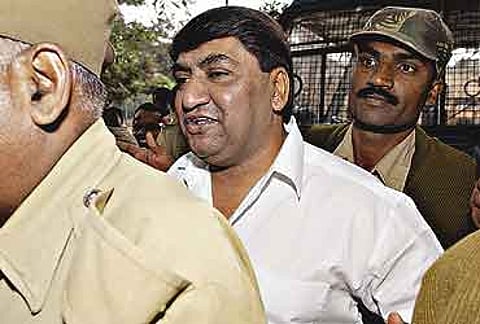The politician-illegal trader nexus is not far to seek. In Mumbai, the political links of the oil trade were exposed during the investigations into the Telgi scam. Former officials of the AAC suspect that Telgi was one of the financiers for many groups of importers who were mere letterhead companies.
Apart from PDS and imported kerosene, one of the other sources of adulteration is alternative fuel products from private players. A couple of years ago, a private refinery advertised in an economic daily for dealers for its Super LDO (light diesel oil).Though LDO is a standard fuel for boilers and pumps, it was not classified as an automobile fuel. But this private company advertised Super LDO as a "diesel alternative".When this issue was taken up by OCC and later the AAC, the petroleum ministry instructed the PSUs not to manufacture it "as there is every chance of this product going into diesel".
A letter from the Oil Industries Training Cell to the AAC on July 2002 elaborates, "The Reliance distributor had clearly indicated that LDO is an alternative fuel for diesel, in other words indicating it can go straight into diesel, maybe at the retail outlet. This gives a clean profit of Rs 4,710 as against a dealer's (legitimate) commission of Rs 365 per kilolitre."
While kerosene imports were banned, naphtha imports continue. Dubai is the base for most of these importers and their agents. Naphtha has most of the properties of petrol but has a lower octane number (65) which implies lower power to fire the engine. In fact, many refineries add naphtha to high-octane petrol they produce to bring down the octane number to the required 88 level. Conversely, to increase naphtha's octane number, enhancers like benzene and toluene are added.
While investigating a naphtha processing unit in Gujarat, the AAC came across a ledger of a company that showed accounts of purchase of benzene and toluene from Reliance. The account book of this unit records procurement of benzene and toluene from Reliance from April 2001 onwards. But according to official petroleum ministry statistics on sale of petroleum products, the private sector has not sold even a single tonne of benzene in 2001-02. The same book of accounts mentions Adani Port Ltd as the provider of naphtha, but Adani is no manufacturer of naphtha. The AAC had, in fact, investigated Adani in connection with import of kerosene and naphtha.
Though there is official recognition of the scam, it has gone on unchecked for well over a decade. In the public perception, kerosene and petrol adulteration is a small-time operation involving a few petrol pump dealers. This is because, more often than not, only the small players are nabbed and the big fish get away. After all, they do not adulterate, they only produce adulterants!
Impure For Sure
So, that's petrol or diesel you're filling? Half of it may be naphtha/kerosene. And the scam starts from the top.


Published At:
Tags